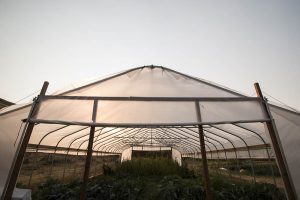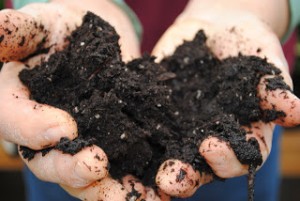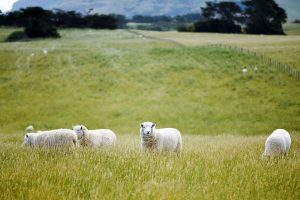THE ROOTS OF WISCONSIN FARM TOURS
All tours depart from The Cove of Lake Geneva at 10:00 am
Farm tours offer an authentic opportunity for peer-to-peer exchange among farmers, as well as on-the-ground exploration of pressing issues facing local food systems for farmers, advocates, activists and eaters. This year’s confirmed farm tours include:
Exploring ‘The Good Land’
Milwaukee Food Systems Tour
Adapted from traditional Ojibwe, Menominee and Potawatomi languages, the name Milwaukee literally translates to “the Good Land.” This tour will highlight organizations working to advance economic opportunity to farmers, bring farm fresh produce to food insecure families, and develop a more just food system. Participants will see how area farmers utilize sustainable practices to revitalize the land they work and hear from Potawatomi & Menominee leaders about their ancestral land, tribal history and how they are reviving traditional food systems to strengthen their communities.
Sites and Speakers Include:- FONDYfood Center’s 40-acre farm is located on the 444-acre Mequon Nature Preserve, just north of Milwaukee. Lead by Fondy Farm Director Stephen Petro, the farm project supports 26 predominantly immigrant Hmong farm families by providing long-term leases and the amenities needed to succeed. In the last 3 years, Marquette University professor Michael Schläppi has transformed a former cornfield into a 1-acre rice paddy, advancing ecosystem restoration for this special area of land.
- Hunger Task Force is Milwaukee’s free and local food bank and a leader in Wisconsin’s anti-hunger community. Hunger Task Force delivers healthy food free of charge to 50,000 people each month in Southeastern Wisconsin through local pantries, meal programs and senior centers. Hunger Task Force’s own 208-acre farm grows 25 types of fruits and vegetables for the express purpose of feeding the hungry. Annually, half a million pounds of locally-sourced produce are grown and distributed through Hunger Task Force’s network, increasing access to fresh and healthy foods for local families.
- Alice’s Garden: Alice’s Garden provides models of regenerative farming, community cultural development, and economic agricultural enterprises for the global landscape.
Soil Obsessed
Resilient Agriculture & Cross-Regional Ecosystem Stewardship
In 1933, in the midst of the Dust Bowl and Great Depression, a new federal agency selected Wisconsin’s Coon Creek watershed as the first site to demonstrate the values of soil conservation to farmers. The agency became the Soil Conservation Service in 1935, creating public works programs and proselytizing farm-based approaches to soil stewardship. To this day, the ethic of soil stewardship pervades Wisconsin’s farming communities. Farmers and leaders in regenerative agriculture will show participants the varied practices they implement on their farms. Discussion will also cover cross-regional implications of farming practices in the Great Lakes and Mississippi River watersheds. Members of the Great Lakes Indian Fish and Wildlife Commission (GLIFWC) will speak to the way agricultural pollution affects Great Lakes tribal communities, while a Louisiana shrimp fisher will discuss how agricultural run-off in Wisconsin affects his work over 1,000 miles downstream.
Sites and Speakers Include:- Michael Fields Agriculture Institute works with farmers, researchers, East Troy community members, and politicians to effect change throughout Wisconsin. Through crop and soil research, farm and food education, public policy, and land transition work their impact is felt across the state. The Institute’s 200+ acre farm will obtain organic certification in October and will house its organic research in the future. This tour will explore the 50 acres where conservation practices were implemented in 2018, including a new waterway and native prairie grass protection of 2 on-farm kettles that control runoff into a nearby lake and the Mukwonago River watershed. Other conservation enhancements include protective buffers around timber areas and an enhanced pollinator habitat.
- Lang Manor Farms and Pleasant Valley Farms:Tom and Margaret Burlingham own and operate Lang Manor Farm, where they grow 500 acres of hay, corn, soybeans, wheat, and custom bale. Margaret is an active member of the Jefferson County Farmland Easement Commission, while Tom’s passion for sustainable agriculture is evident in his long-term use of no-till and cover cropping to enhance soil health and protect the farm’s highly erodible soils. This stop will highlight cover crop mixes after wheat and the results from an ongoing examination of the economics of cover crop use. Neighboring farmer Tom Novak of Pleasant Valley Farms, who is also involved in the study, will join the discussion
- Brattset Family Farm: is a second-generation farm that is owned, managed and cared for by Kirsten, Pat, Jessica & Jacob Jurcek, and Damon, Trish & Bethany Brattset. Over 290-acres, Brattset Family Farms produces 100% grass-fed and -finished beef in compliance with Certified Organic Standards and Animal Welfare Approved. The family farm is centered around 146 acres of organically managed crop and pastureland, restored prairies, woodland, wooded wetland, wild life ponds and habitat, a herd of 100% grass fed and finished beef cattle, pastured hogs, seasonal poultry flocks, seasonally milked dairy cows, and a silvoculture nut and fruit tree planting. The farmland is preserved for agricultural use & wildlife conservation in perpetuity, for the benefit of future generations through a conservation easement held by the Drumlin Area Land Trust.
- Michael J. “Mic” Isham, Jr. Mic is the Executive Administrator of the Great Lakes Indian Fish and Wildlife Commission (GLIFWC). Formed in 1984, GLIFWC represents eleven Ojibwe tribes in Minnesota, Wisconsin, and Michigan who reserved hunting, fishing and gathering rights in the 1837, 1842, and 1854 Treaties with the United States government. Mic is a member of the Lac Courte Oreilles Band of Lake Superior Chippewa Indians.
Here for the Long Haul
Innovative Marketing Strategies to Survive the Crisis
As today’s farm crisis unfolds, farmers are often desperate for quick-fix solutions to keep the farm afloat. This tour will visit farmers who utilize direct marketing, market diversification, coop development and other practices to survive and thrive through crisis. With hemp being touted as a miracle crop and production ramping up in states across the country, we’ll hear a more grounded conversation about hemp production and marketing and what farmers should keep in mind as they consider hemp production.
Sites and Speakers Include- Hughes Farm is a sixth generation farm, owned and operated by Randy and Judy Hughes who own and rent over 5000 acres of tillable land centered in Rock County. Among other products, Hughes Farm grows certified organic blue corn and processes organic blue corn chips nearby. Participants will visit the farm to hear more about the Hughes’ experience with value added production.
- Pinn-Oak Ridge Farms: Steve & Darlene Pinnow’s successful business starts with raising rotationally-grazed lambs on their 140-acre farm and includes building an on-farm lamb processing facility in order to serve farmers across southern Wisconsin. The Pinnows pride themselves on freshness and paying other farmers a fair price that is considerably above the going market rate for their meat. Their farm also delivers to stores throughout Wisconsin, parts of Illinois and Indiana. They are just about to expand their facilities, adding a new office and expanded storage for the slaughter facility.
- Michael Fields Agriculture Institute works with farmers, researchers, East Troy community members, and politicians to effect change throughout Wisconsin. Through crop and soil research, farm and food education, public policy, and land transition work their impact is felt across the state. The Institute’s 200+ acre farm will obtain organic certification in October and will house its organic research in the future. This tour will explore the 50 acres where conservation practices were implemented in 2018, including a new waterway and native prairie grass protection of 2 on-farm kettles that control runoff into a nearby lake and the Mukwonago River watershed. Other conservation enhancements include protective buffers around timber areas and an enhanced pollinator habitat.We’ll also discuss Michael Fields’s ongoing hemp research.
- Turtle Creek farm: Starting in 2010, Janet Gamble and Steve Tomlins have co-managed the conversion of 100 acres of corn and soybeans into an ecologically rich, certified organic regenerative farm, with a vegetable and fruit CSA, pasture for cattle and hogs, and, more recently, hemp for medicinal oils. They have become models for market innovation, particularly when derived from collaborating with other farmers. On their own farm, they are building collaborative leadership teams for the multiple enterprises that represent their diversified markets.
Register for Farm Tour





